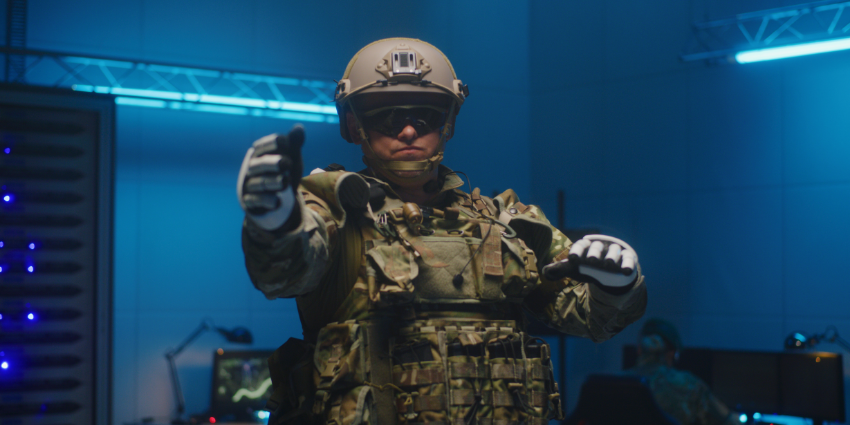Microsoft has won a contract worth $21.88 billion over 10 years, said the U.S. Army Wednesday. Microsoft is to build more than 120,000 headset units based on HoloLens augmented reality headsets.
The software giant’s shares have increased by 1.7% after the announcement, reaching $235.77 per share at the end of Wednesday’s trading sessions.
The mammoth deal was a follow-up on a $480 million contract Microsoft already received to give the Army prototypes of the Integrated Visual Augmented System (IVAS) in 2018.
The standard type of HoloLens, enables people to see holograms overlaid over their actual environments and interact using hand and voice gestures. The product retails for $3,500.
The headset also shows the aim for a weapon and the 2019 version displays a map and a compass, along with thermal imaging to reveal people in the dark.
Alex Kipman, a technical fellow at Microsoft, and the person who introduced the HoloLens in 2015, wrote in a blog post: “The IVAS headset, based on HoloLens and augmented by Microsoft Azure cloud services, delivers a platform that will keep soldiers safer and make them more effective.”
“The program delivers enhanced situational awareness, enabling information sharing and decision-making in a variety of scenarios”, adds Kipman.
The Army said in a statement that the headset enables soldiers to fight, rehearse and train all in one system. A five-year base period for the contract, awarded on Friday, will have a five-year option after that, said an Army spokesperson.
The deal goes to show the significance of Microsoft presence in the technology market and the multifaceted uses of their products. Back in 2019, Microsoft signed a contract with the Defense Department to provide cloud services, winning against Amazon, the leader of the public-cloud market. This has led to Amazon challenging the contract in federal court.
The contract was not welcomed by a group of Microsoft employees who previously asked the company to hold it off, as well as cancel the contract on HoloLens. The employees were not happy with the intention of using the headset as a weapon and demanded a say in how their work was used.
Days later, Microsoft CEO, Satya Nadella, justified the Army augmented reality project, telling CNN that: “We made a principled decision that we’re not going to withhold technology from institutions that we have elected in democracies to protect the freedoms we enjoy.”
The Army defended the augmented reality technology by saying that the headsets could help soldiers target enemies and prevent the killing of civilians.







